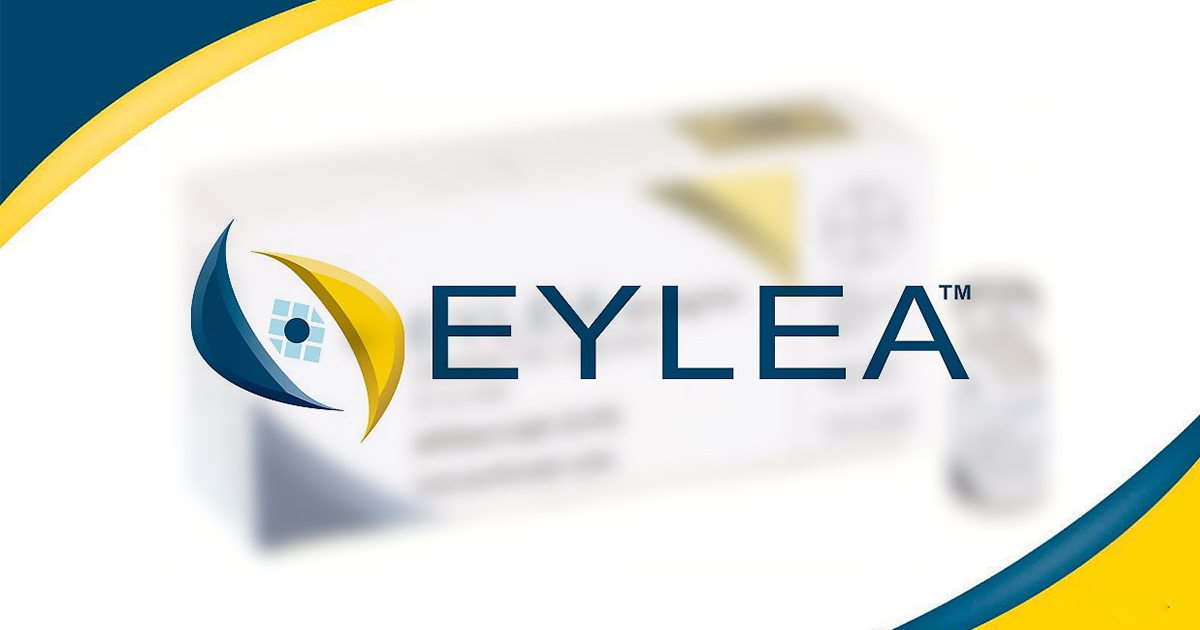Copycats Line Up to Challenge Eylea

Regeneron Pharmaceuticals‘ stock took a double hit in January upon news that two companies are making progress on biosimilars of Eylea (aflibercept) treatment for age-related macular degeneration, diabetic macular edema, and other retinal diseases.
The first hit came on the second trading day of the New Year, when Momenta Pharmaceuticals and Mylan NV announced their joint development strategy for the proposed Eylea biosimilar, M710. The companies said they plan to initiate a pivotal clinical trial in patients in the first half of the year. Regeneron’s stock responded by falling more than 5% in a day, from around $394 to $374 a share.
Just as the stock price was recovering, reaching almost $392 a share, the website JD Supra reported that South Korea’s Alteogen released a study that showed its aflibercept biosimilar, ALT-L9, had demonstrated similarity to Eylea with no significant side effects in Michigan-based preclinical trials, and that it would file a New Drug Application with the Food and Drug Administration this year. Regeneron’s stock fell around 6%, closing last week at around $375. That’s still above its one-year low of $344.50 on January 30, 2017, but well below the one-year high of $522.02 in June.
While the stock rallied somewhat in the past few days, it slumped on Wednesday to close below $367.
Also, Germany’s Formycon has been working in partnership with Santo Holdings to develop another Eylea biosimilar, FYB203. The companies are also developing FYB201, a biosimilar of Genentech‘s Lucentis (ranibizumab), Eylea’s primary competitor.
Eylea comes off patent in 2022 in China and Japan, 2023 in the US, and 2025 in Europe.
Eylea Biosimilars Clinical Trials
It’s worth noting the Alteogen trial was in monkeys. They received injections of both Eylea and ALT-L9 four times every four weeks. After 13 weeks, the drugs showed similar efficacy and safety, according to a press release issued last week. Alteogen notes that ALT-L9 has been developed with its own composition and formulation to make it more resilient to high temperatures, which Alteogen hopes will achieve a longer shelf life than Eylea itself.
In 2014, Alteogen granted Kissei Pharmaceutical exclusive rights to develop and commercialize ALT-L9 in Japan. The Korean firm plans to roll out its Eylea copy in Japan and China in 2022 when the patents of the brand-name drug lapse.
The Momenta-Mylan clinical trial of M710 is to be a randomized, double-blind, active-control, multi-center study in patients with diabetic macular edema. The primary outcome is the comparable safety, efficacy, and immunogenicity of M710 with Eylea.
Lucentis Copycats Also in Works
Lucentis is also the subject of multiple biosimilar developers. In 2015, Intas Pharmaceuticals launched the Lucentis biosimilar Razumab in India. At least two other companies are developing Lucentis biosimilars: Pfenex for the US market; Apotex in Europe; and Samsung Bioepis is scheduled to begin a Phase III clinical trial of its Lucentis biosimilar, SB11, in April, according to ClinicalTrials.gov.
Lucentis patents expire earlier than Eylea’s: 2020 in the US and 2022 in Europe.
The Eylea biosimilar may prove more lucrative than the Lucentis copycats. An unnamed Alteogen official told The Investor, “We believe that our Eylea biosimilar will create higher market value than Lucentis biosimilar products as more patients opt for Eylea because it is more patient friendly due to a less-frequent dosing schedule.”
Ronny Gal, an analyst at Bernstein who follows biologics, told Retina Specialist magazine that a Lucentis biosimilar may be a risky venture because of the “clinical obsolescence” of the index biologic itself.
ThePharmaLetter.com reports that US Eylea sales rose 12% in the third quarter of 2017 to $953 million. Sales outside the US, which are booked by Bayer, rose 20%. In 2016, global net sales of Eylea were $5.2 billion.
